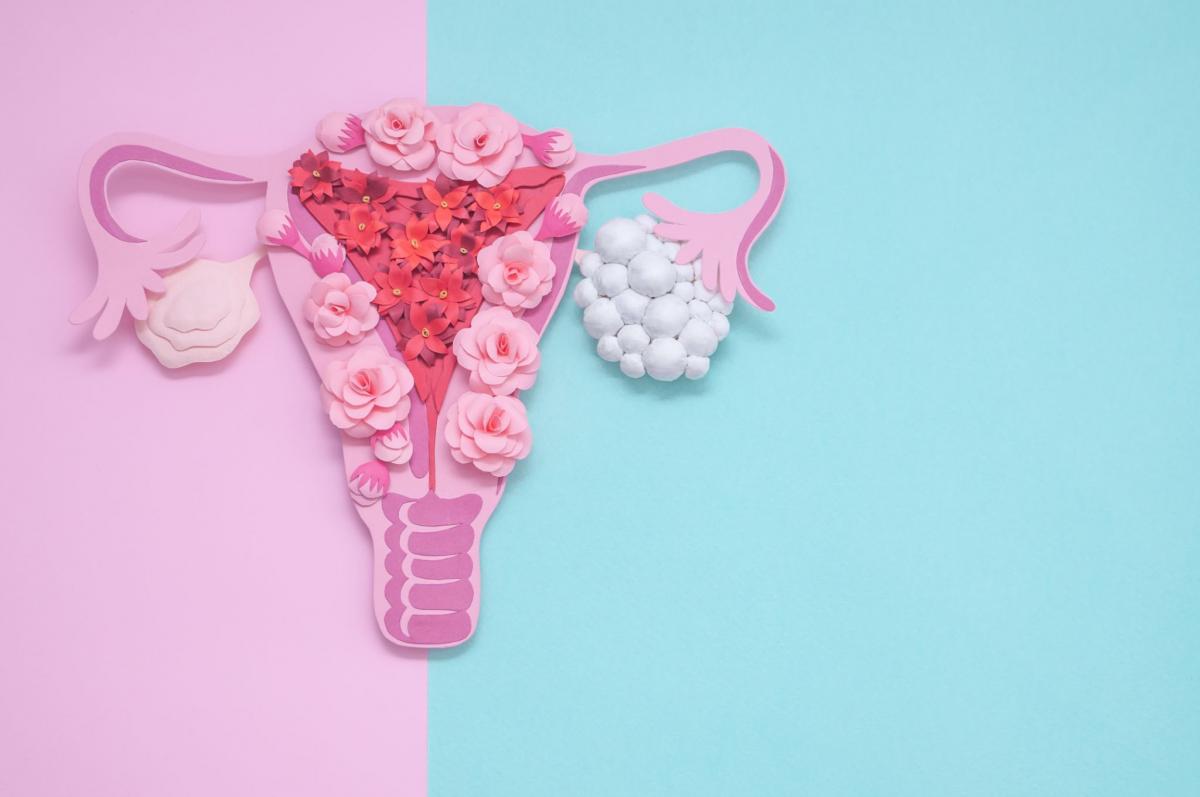
All About Hormonal Imbalance in Women
Because hormones play so many vital roles in the female body, even the slightest imbalance can impact overall health. Here’s what you need to know about hormonal fluctuations, how hormone levels can become imbalanced, and what you can do about it.
What Are Hormones and What Do They Regulate?
Hormones are produced by the endocrine system and deliver instructions to the organs about what their jobs are and how to do them. Hormones are responsible for the regulation of many functions and processes in the body, including:
- Body temperature
- Sexual function
- Heart rate
- Reproductive cycles
- Appetite
- Metabolism
What Are Some of the Different Female Hormones?
Estrogen, progesterone, oxytocin, testosterone, and cortisol are all hormones that, when out of balance, can cause several issues in women.
Estrogen is made by the ovaries and is responsible for both reproductive and sexual development. It also supports the health of the blood vessels, heart, breasts, bones, and the brain, among many other areas.
Progesterone is responsible for regulating ovulation, as well as menstruation. In addition, this hormone supports bone health and increases metabolic rate, which boosts your energy and appetite.
Oxytocin sends signals during labor to begin contractions and, after birth, to promote lactation. Known as the love or sex hormone, oxytocin can assist with increasing trust, loyalty, sexual arousal, and bonding.
Testosterone levels play a critical role in the bodies of both men and women. It not only supports bone and muscle strength but also regulates how body fat accumulates. Testosterone also enhances the female sexual experience.
Cortisol is known as the stress hormone that’s produced in the adrenal glands. Cortisol is an anti-inflammatory released during times of elevated stress, exercise, and excitement, but it also affects blood pressure, memory, and blood sugar levels.
What Conditions Can Result from Hormonal Imbalance?

There are several types of conditions that can result from hormonal imbalances, including:
- Diabetes mellitus
- Cushing’s syndrome
- Estrogen imbalance
- PCOS or polycystic ovarian syndrome
- Thyroid disorders like hyperthyroidism
Diabetes Mellitus
Diabetes is the increase of sugar in the blood due to insulin resistance, where the cells don’t respond well to insulin, or because the pancreas doesn’t produce sufficient amounts of insulin. Untreated diabetes can lead to problems with the heart, eyes, and other parts of the body. This condition can be the result of too much cortisol.
Cushing’s Syndrome
Cushing’s syndrome is the result of excess cortisol being released in the body. This can occur if the adrenal glands produce too much cortisol, but it can also occur in women who take medications that contain steroids.
Estrogen Imbalance
As women age, so do their ovaries, which can cause high levels of estrogen in the body. As well, being overweight can cause estrogen fluctuations to occur, and a malfunctioning thyroid gland can also affect estrogen levels. High estrogen levels can cause other conditions like breast cancer.
PCOS
PCOS is a condition characterized by the formation of cysts on a woman’s ovaries. This result of hormonal imbalance can affect the menstrual cycle, as well as skin health, weight gain, and hair growth.
Thyroid Disorders
Hypothyroidism (underactive thyroid gland) and hyperthyroidism (overactive thyroid gland) can be caused by excess or insufficient estrogen in the body. An over- or underactive thyroid gland affects the hair, skin, bones, muscles, heart, and blood vessels, among many others.
Common Symptoms of Hormonal Imbalance in Women

Hormonal imbalance in women is characterized by a wide range of symptoms.
Brain fog is a term used to describe complaints related to memory. These include difficulty concentrating, confusion, and a feeling of being scattered or disorganized.
Irregular menstruation includes periods that are frequent, that have stopped, or that are heavy or irregular.
Persistent acne no matter what part of a cycle a woman is in can be due to high levels of testosterone and other male hormones.
Mood disorders include mood swings, depression, and anxiety. The signs of depression and anxiety can be very subtle and occur over a long period of time.
Sleep disorders like insomnia, broken sleep, or difficulty falling asleep are a common symptom of hormonal imbalance, specifically in progesterone.
Persistent weight gain is common with hormonal imbalances, which make losing weight difficult. As well, too much abdominal fat can worsen hormonal imbalance because visceral fat produces its own hormones.
Fatigue can be the cause of low thyroxine, a thyroid hormone. If you feel as though getting out of bed or moving at all is a struggle, this could be due to hormonal imbalance.
Digestive issues like diarrhea, bloating, constipation, nausea, or vomiting before or during your periods can indicate hormonal imbalance.
Headaches around the time of your period may be due to too much estrogen in the body.
Other symptoms of hormonal imbalance include:
- Low libido
- Tenderness in the breasts
- Night sweats
- Vaginal dryness
- Hot flashes
- Frequent hunger
- Loss of muscle mass
How Women Can Balance Their Hormones
Before applying any hormone rebalancing solution, it’s vital to contact your health practitioner to get a blood test and physical examination. This will reveal which hormones are out of balance.
The pharmaceutical treatments available for hormone imbalance include:
- Estrogen supplementation
- Birth control pills
- Progesterone supplementation
- Thyroid hormone therapy
- Testosterone supplementation
- Metformin
- Clomid
- Vaniqa
- Levothyroxine
You can also reverse or relieve some of the symptoms of hormone imbalance by:
- Avoiding foods that can trigger hot flashes, such as spicy foods and hot temperatures
- Eating a balanced diet of whole, unprocessed foods
- Eliminating sugar and carbs
- Consuming lots of fiber
- Ensuring you get enough protein
- Incorporating healthy fats like avocado into your diet
- Getting sufficient Omega-3 fatty acids in your diet
- Meditating to soothe anxiety symptoms
- Losing excess weight, which can restore regular periods
- Engaging in regular exercise such as yoga to relieve symptoms and improve physical health
- Seeing a chiropractor to improve spinal and overall health
- Using reflexology to improve hormone balance and overall health
- Taking collagen to support joint, bone, and skin health
Certain items may also regulate hormone imbalance. Ask your health practitioner about:
- Indole-3 Carbinol or I3C, an extract of broccoli for reducing excess estrogen
- Ginseng to soothe sleep issues, anxiousness, and other menopause symptoms
- Evening primrose oil, dong quai or black cohosh for hot flashes
- Probiotic foods like kefir and kimchi for optimizing gut bacteria balance
- Melatonin for better sleep
Using essential oils can also ease hormonal imbalance symptoms. Never ingest any essential oil; they should only be used topically, in a diffuser with water, or inhaled.
- Lavender and peppermint for headaches
- Citrus oils like lemon and orange for improved energy
- Ylang Ylang for calming anxiety
Female Hormonal Imbalance Is Not Uncommon
The female body changes with age and these changes can result in hormone imbalance. While this condition is certainly not uncommon, identifying a particular imbalance and getting the proper treatment is crucial.
Several items are available to treat the symptoms of hormonal balance at home, and there are many other ways to relieve hormonal imbalance symptoms.
Before beginning any health treatment or exercise regimen, it’s important to discuss these with your health practitioner to ensure they are safe for you to begin.
Improving the Quality and Delivery of Healthcare
Addressing hormonal imbalance and other conditions begins with treating the whole patient, not just the condition. Crystal Run Healthcare is dedicated to providing high quality care for patients of all ages.
Our many locations, wide range of specialty care, extended hours, and much more allow patients to benefit from greater access and convenience that’s close to home. Visit our website or call 845-703-6999 today.

 Optum Radiology at Crystal Run Healthcare
Optum Radiology at Crystal Run Healthcare Same and next-day pediatric appointments
Same and next-day pediatric appointments